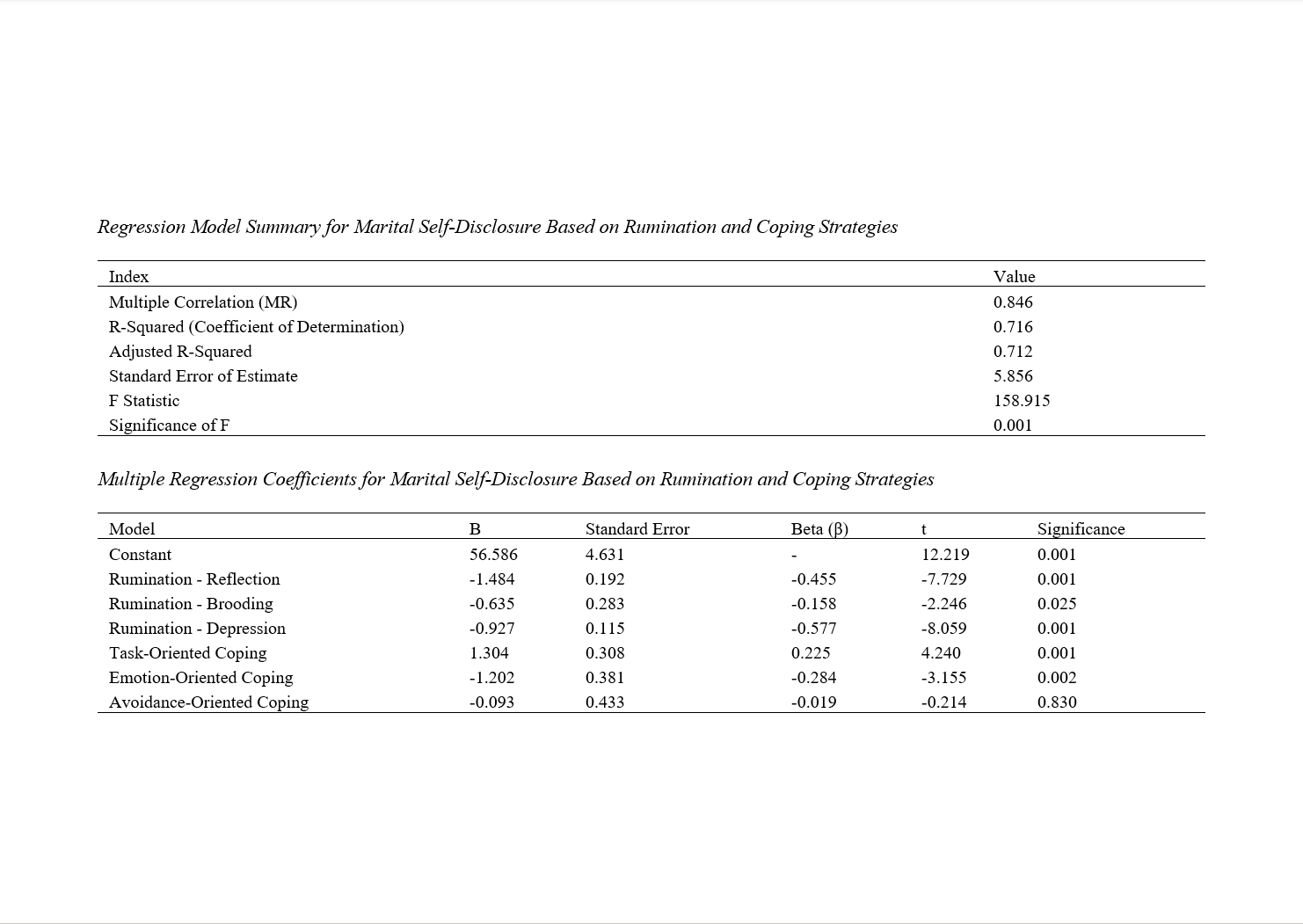The Relationship Between Rumination and Coping Strategies with Marital Self-Disclosure
Keywords:
personality, rumination, marital self-disclosure, coping strategies, married womenAbstract
Objective: The aim of this study was to investigate the relationship between rumination and coping strategies with marital self-disclosure.
Method: This research is fundamental in terms of its objective and descriptive-correlational in terms of data collection. The statistical population of this study consisted of all married women at the Faculty of Psychology and Educational Sciences, Islamic Azad University, Central Tehran Branch, during the academic year 2022-2023. To this end, 385 women were selected using Cochran’s formula and convenience sampling method. Participants responded to the Marital Self-Disclosure Questionnaire by Waring et al. (1998), the Ruminative Response Scale by Nolen-Hoeksema et al. (1993), and the Brief COPE Inventory by Endler and Parker (2008). After collecting the questionnaires, the data were analyzed using Pearson’s correlation coefficient and simultaneous multiple regression analysis.
Findings: The results indicated a significant negative correlation between rumination, avoidance-oriented coping strategies, and emotion-focused coping strategies with marital self-disclosure (p < .01). There was a significant positive correlation between problem-focused coping strategies and marital self-disclosure (p < .01).
Conclusion: The results of the multiple regression analysis also revealed that 71.6% of the variance in marital self-disclosure is explained by rumination and coping strategies. Therefore, it can be concluded that rumination and coping strategies can predict marital self-disclosure among married women.
Downloads

Downloads
Additional Files
Published
Submitted
Revised
Accepted
Issue
Section
License
Copyright (c) 2024 Ashraf Footoohi (Author); Marzieh Poursalehy Navideh (Corresponding Author)

This work is licensed under a Creative Commons Attribution-NonCommercial 4.0 International License.




















